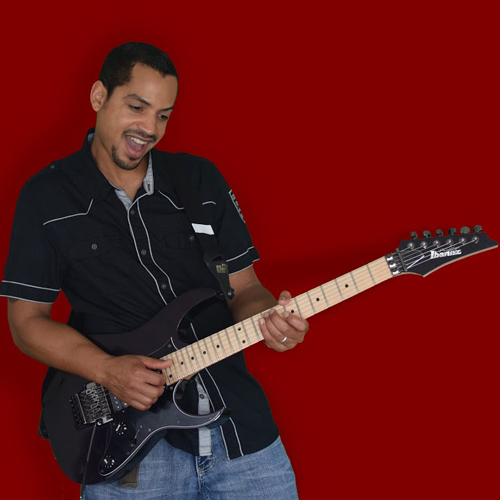This simple three-step process will teach you how to motivate your child to practice guitar or any other instrument.
Get your child some extra motivation with Rock Dojo online guitar lessons for kids.
You Just Signed Your Child Up For Guitar Lessons
You signed your child up for guitar lessons, picked out a great guitar, and set up the perfect practice space. The stage is set for a lifetime of musical enjoyment. In your mind’s eye, you can clearly see your child rocking out on stage in front of a raucous crowd of family, friends, and classmates.
The only thing standing between your child and the big stage is a pesky thing called practice. Your child doesn’t want to do it, and you don’t want to fight about it. Even the most motivated students go through periods when they don’t feel like practicing.
How Do You Motivate Children to Practice?
This simple three-step process will help you and your child bust through plateaus and build serious musical momentum. Before I dive in, however, let me give credit where credit is due. I first encountered these ideas from Donnie Schexnayder’s podcast, Start Teaching Guitar.
Setting SMART Goals Helps Motivate Your Child to Practice Guitar
The first step to motivating your child to practice the guitar is setting goals. That’s because goals provide students with specific outcomes to aim towards.
Sit down with your child and set goals using the SMART Goal Formula. A smart goal is specific, measurable, attainable, realistic, and timely.
- Specific: The goal should be clearly defined.
- Measurable: Define the goal in measurable terms.
- Attainable: Choose goals that are realistic and attainable.
- Relevant: Choose goals that are important to your child.
- Timely: Define a timeframe during which your child will complete the goal.
Some great goals include playing a song from start to finish, learning the most commonly used open chords, or memorizing the names of the notes on the E and A strings.
Those goals are specific, measurable, attainable, and relevant. The only thing that’s missing is timely. For that reason, be sure to attach a timeline to each goal you set with your child.
Taking our example one step further, a great SMART goal would be to memorize the names of the E and A strings within the first eight guitar lessons. It’s a stretch, but it’s specific, measurable, attainable, relevant, and timely.
Establishing Milestones Helps Motivate Your Child to Practice Guitar
The second step to motivating your child to practice the guitar is establishing milestones. In the past, a milestone was a stone set up beside a road to mark miles to a particular place. Today, the word milestone is an event marking a significant change or stage in development. In other words, a milestone is a great way for you and your child to visualize musical progress.
Once you and your child have a list of S.M.A.R.T. goals, you can transform the most significant goals into milestones. Some great milestones include your child’s first musical performance before an audience, your child’s first fifty hours of deliberate guitar practice, or the day your child receives a Rock Dojo black belt in rock guitar!
Celebrating Wins Helps Motivate Your Child to Practice Guitar
You and your child set goals and established milestones. The final step to motivating your child to practice the guitar is celebrating wins. This is the crucial step in the formula because you and your child connect hard work and rewards.
I suggest making a list of small, medium, and large rewards. A small reward costs less than $25, a medium reward costs between $26 – $99, and a large reward is $100 or more. Here’s a list of some great rewards for your child.
- Small: Small rewards should be tied to the least challenging goals like learning how to play Iron Man on a single string. Some great small rewards include a pack of Pokemon cards, a bowl of ice cream, or a play date at the park with friends.
- Medium: Medium rewards should be tied to medium challenging goals like learning moveable power chord shapes on the E & A strings. Some great medium rewards include a concert, a trip to the movie theater, or a dinner at your child’s favorite restaurant.
- Large: Save the largest rewards for the biggest challenges like earning a Rock Dojo black belt in rock! A great example of a large reward is a new guitar or amp.
FREE Online Guitar Lessons for Kids
Join Rock Dojo’s mailing list and receive a FREE introductory guitar course for kids, a guitar starter kit, and exclusive discounts on Rock Dojo courses. It’s free, and you can cancel at any time. Sign up today!



